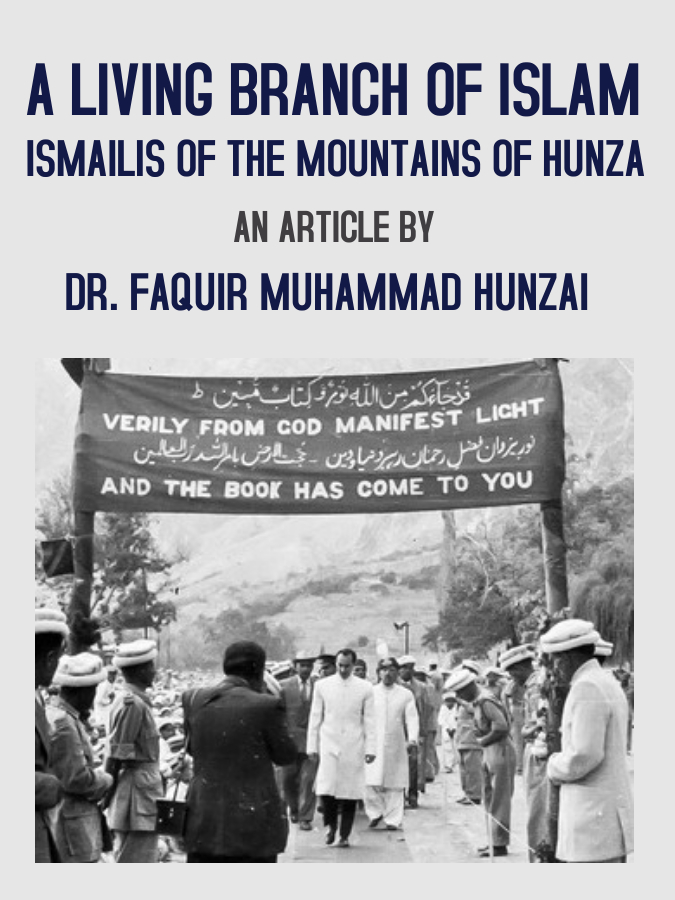A Living Branch of Islam: The Ismailis of the Mountains of Hunza
Excerpt:
Another characteristic that distinguishes Šī’ah Islam, particularly Ismaili Šī’ism, from Sunnī Islam is the concept of tanzīl and ta’wīl. Tanzīl, which literally means ‘sending down’ or ‘bringing down’ implies explaining intelligible spiritual realities in the form of perceptible material parables and allegories. Ta’wīl, which literally means to take something back to its origin, implies to gradually remove the veils of parables and allegories from those realities and to explain them in their pure, original, spiritual state. This dual process is also called transformation of subtle (laṭīf) into dense (kaṭīf) and vice versa, that is, to give a physical form to spiritual realities and to give spiritual meaning to physical parables and allegories. Thus, the purpose of one cannot be fulfilled without the other. Tanzīl is called the miracle of the Prophet and ta’wīl is the miracle of the Imāms in their respective times. The Prophet therefore said: “I am the custodian of tanzīl (Ṣāḥib al-tanzīl) and ‘Alī is the custodian of ta’wīl (Ṣāḥib al-ta’wīl)”. He further said in numerous traditions, unanimously accepted by Muslims, that ‘Alī would fight for the sake of ta’wīl as he, the Prophet had fought for the sake of tanzīl.
This excerpt has been taken from page 4.

